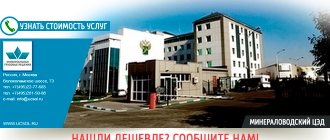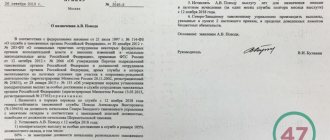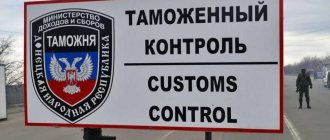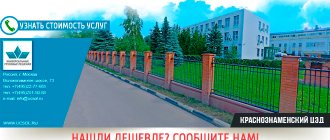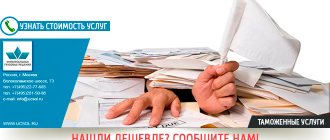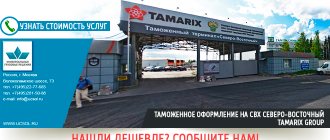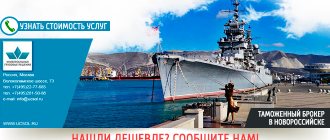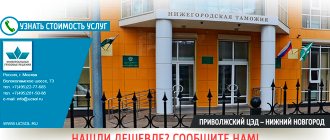General list
Both citizens who have just entered the service here and employees with a certain amount of work experience receive ranks at customs. In the cumulative list, without division into categories, the following ranks appear:
- Ensigns: ordinary and senior.
- Lieutenants: simple, junior and senior.
- Captain.
- Major.
- Lieutenant colonel.
- Colonel.
- Generals: major, lieutenant and colonel.
- State Advisor.
What ranks should there be in customs and their purpose is regulated by clause 1 of Art. 5 Federal Law No. 114.
General list
Titles at customs are given to both citizens who have just entered the service here and employees with a certain amount of work experience. In the cumulative list, without division into categories, the following ranks appear:
- Ensigns: ordinary and senior.
- Lieutenants: simple, junior and senior.
- Captain.
- Major.
- Lieutenant colonel.
- Colonel.
- Generals: major, letekha and colonel.
- State Advisor.
What ranks must visit customs) and their purpose is regulated by clause 1 of Art. 5 Federal Law No. 114.
Position system
It is formed on the basis of clause 2 of Art. 5 of the designated law. Arranged according to a hierarchical principle. Ranks in Russian customs are divided into four groups in ascending order:
- Jr.
- Middle manager.
- Senior commander.
- Top management.
The positions of the first three categories and the requirements for them are approved by the Chairman of the State Customs Committee of the country. The formation of clause 4 is the prerogative of the president.
Federal Law No. 114 regulates that at the state level, customs officers receive special ranks in the following format.
| Rank/Composition | Positions |
| Jr | Ensigns |
| Average | Lieutenants and captain |
| Senior | Major, lieutenant colonel and colonel |
| Higher | Generals and Advisor |
Job Theory
It is formed on the basis of clause 2 of Art. 5 of the designated law. It is arranged according to a hierarchical principle. The ranks in the Russian customs are divided into four groups in ascending order:
- The youngest one.
- Middle manager.
- Senior commander.
- Higher management.
The positions of the first three categories and the demand for them are approved by the Chairman of the State Customs Committee of the country. The organization of clause 4 is the prerogative of the president.
Federal Law No. 114 regulates that at the state level, customs officers receive special ranks in the following format.
| Rank/Composition | Positions |
| Jr | Ensigns |
| Middle | Lieutenants and captain |
| Senior | Major, lieutenant colonel and colonel |
| Senior | Generals and Advisor |
First and next
These may be ranks in customs. Some can only be promoted to the rank of captain by the heads of the relevant departments. To do this, they must be vested with a certain right of the Chairman of the State Customs Committee.
Second officers can receive positions in the hierarchy from major to colonel. They are assigned by the head of the State Customs Committee himself. The same principle applies when an employee moves into middle or senior management.
Ranks in customs from major general are received from the President. Candidates are nominated to him by the Chairman of the State Customs Committee.
When an employee is assigned the first special rank, he must take an oath. To do this, he is given a period of 2 months from this moment. You can find the necessary text of the oath in Art. 19 Federal Law 114. The algorithm for its adoption is interpreted by the head of the State Customs Committee.
Question about length of service
Special ranks are assigned sequentially in accordance with the position that the employee occupies, as well as upon completion of a standardized period of service.
An employee can be awarded another title as a reward for conscientious work. Moreover, this happens before the end of the service period. But, one way or another, a customs officer does not receive a title that does not correspond to the position.
For special achievements, the next title may be one step higher than the position. But you can become its owner only when your period of service is completed.
Query by length of service
Special ranks are assigned progressively in accordance with the position that the employee occupies, as well as upon completion of a standardized period of service.
An employee can be awarded another title as a reward for conscientious work. Moreover, this happens before the end of the term of service. But, somewhere or another, a customs officer does not receive a position that does not correspond to the position.
For special successes, the next title may be one step higher than the position. But it is good to become its owner. Ant. it is impossible only when the period of service ends.
Academic degrees
To obtain the next rank in customs, one level above a certain position, there is another loophole. To do this, the employee must have an academic degree. But this principle is limited hierarchically: after the rank of colonel, it no longer applies.
Customs officers who have this degree also receive a financial bonus. It is produced monthly. Calculated as a percentage of the official salary. Its parameters depend on the magnitude of the degree. These data are reflected in the following table:
| Degree | Surcharge in % |
| PhD | 5 |
| Doctor | 10 |
| Assistant professor | 5 |
| Professor | 10 |
An employee receives a bonus in the following cases:
- If he has a degree by the initial day of work in the customs department. Accrual starts from this time.
- He receives his degree while serving in customs. The calculation starts from the day when the All-Russian Academy of Sciences makes a decision on issuing a diploma, a candidate, or awards a doctorate.
- For professorial rank or associate professor status. Accrual is carried out from the day when the Ministry of Education makes a positive verdict on the awarding of these degrees.
In a situation involving misconduct
If an employee has been subject to a disciplinary sanction (the exception being an oral one) or is accused in a criminal case, then his professional advancement is suspended. And he can apply for a new title only after the claims are dropped and the criminal process is completed. Moreover, in the latter, the second option should include rehabilitating grounds.
Also, the employee does not receive a new rank while an official check is being carried out.
If the head of a customs organization, without valid justification, delays the promotion of a subordinate to the next rank, he is subject to disciplinary punishment. And the designated employee can count on compensation for the well-deserved funds that he could have received if he had been awarded the next rank in a timely manner.
Epaulets and stars. General provisions
All ranks of customs officers are expressed in the clothes of the employees. There are also distinctive features in the shoulder straps. This includes the number, location, diameters of stars, geometric shape of the edges, color, and more.
Also, an employee in a particular rank is determined by some special elements. For example, management representatives have a line embroidered with gold thread in their uniforms.
The following describes in more detail the characteristics of shoulder straps in accordance with a specific rank.
Management team
In his uniform, shoulder straps have the following distinctive characteristics:
- Shape - rectangle
- The upper edge is trapezoidal.
- Availability of fabric coloring field.
- According to item 3 there is a line embroidered with textured gold thread.
- Green edging. It is missing from the shoulder straps on the shirt.
- Embroidered stars are available in similar colors to the thread shown. Their diameter is 2.2 cm.
- The button is located on the upper side of the shoulder straps. It is important!
Photos of high-rank customs rank shoulder straps are presented below.
Leading group member
In his uniform, shoulder straps have the following distinctive characteristics:
- Morphology – rectangle
- The upper edge is trapezoidal.
- Availability of fabric coloring field.
- Combining item 3 is a line embroidered with textured gold thread.
- Bright green piping. The lover is missing from his shirt epaulets.
- Embroidered stars are available in similar colors to the thread shown. Their diameter is 2.2 cm.
- The button is located on the upper side of the shoulder strap. It is important!
Photos of high-ranking customs rank epaulettes are shown below.
Special clothing
For customs senior command staff, it has shoulder straps with the following characteristics:
- Rectangular shape.
- The edge at the top has the shape of a trapezoid.
- There is a field of galun.
- The fabric flowers are intertwined with green edging.
- The stars on the shoulder straps are olive in color. Their diameter is 2.2 cm.
- Button in the upper zone.
- The location of the stars is the longitudinal center line.
- Their number differs depending on the rank. So on the shoulder straps of the current adviser there are 4 of them.
As for the category of generals, there is the following ratio of stars: a colonel has three, a lieutenant has two, a major has one.
Senior Management Team
His uniform and special clothing is equipped with shoulder straps that have:
- Rectangular shape.
- The top edge resembles a trapezoid.
- There is a field of galun. It is distinguished by a special combination of fabric coloring with a pair of transverse gaps.
- There is an edging.
- There is a button in the upper zone.
Stars with a diameter of 2 cm are concentrated on them. Their number and location are also determined by the level of rank in Russian customs. The following picture emerges:
- Colonel - three stars. Two - from below on both sides in relation to the longitudinal line. The third is above them on the center line.
- Lieutenant Colonel - two. They are located two zones from the longitudinal line along the axis.
- Major - alone. On the designated line in step 2.
Senior staff
His uniform and special dress is equipped with shoulder straps that have:
- Rectangular style.
- The top edge resembles a trapezoid.
- Sit on a field of galloon. It is distinguished by a special combination of color red goods with a pair of transverse clearances.
- There is a curb.
- There is a button in the upper zone.
Take them, concentrated stars, the diameter of which is 2 cm. Their size and location are also determined by the level of rank in Russian customs. So the picture is the following:
- Colonel - three stars. Two - from below on both sides after relation to the longitudinal line. The third is above them on the center line.
- Lieutenant Colonel - two. Are located with two zones from the longitudinal appearance along the axis.
- Major - alone. Take the designated line in step 2.
Middle management
The uniform and overalls for this category of customs officers are almost the same shoulder straps as those of senior management. The differences are only in three points:
- One transverse clearance.
- The diameter of the stars is 1.4 cm.
For certain ranks there is a specific number of them. The ratio is:
- Captain - four stars. Two below and on both sides of the longitudinal line. Another pair is located above them on the longitudinal line along the axis.
- Senior lieutenant - three. The location is identical to step 1. Only one star on top.
- Lieutenant - two. Their positions are similar to clauses 1 and 2.
- Junior lieutenant - one. Location - on the longitudinal line along the axis.
Junior employees
Shoulder straps are sewn onto their uniforms and overalls, which are identical in geometry and design to those of senior management. The stars on the shoulder straps have a diameter of 1.4 cm (the same as the average composition). Depending on the rank, their number and location are as follows:
- Senior warrant officer - 3 stars. All of them are arranged on a longitudinal line along the axis.
- Ensign - two. The location is identical.
Sleeve symbols
This is a mandatory attribute complete with shoulder straps and stars to identify the rank of a customs officer. It is sewn to the outside of the obligatory left sleeve. This principle works for both uniforms and work clothes of employees.
Using the sleeve insignia, it is also determined which customs department of the country the official belongs to. The patch is placed on the right sleeve, on its outer side. Suitable type of clothing: tunic, jacket or woolen jumper.
Sleeve symbolism
This is a mandatory attribute, complete with shoulder straps and stars, to identify the rank of a customs officer. Someone is sewn to the outside of the obligatory left sleeve. This principle works both for uniforms and (avoidance of special clothing for employees.
Using the sleeve insignia, in turn, it is determined which customs department of the country the official belongs to. The patch is made on the right sleeve, take it on the outside. Suitable clothing: tunic, jacket or unshaven jumper.
New style shoulder straps
Interesting and unexpected news is coming from the capital. Soon the appearance of customs officers' shoulder straps will change. But the rebranding will not affect everyone, but only those with special titles (employees). What possible reasons lie behind these initiatives?
By Decree of the Government of the Russian Federation of August 15, 2021 No. 1231, changes are being made that relate to the transformation of everyday trousers (now they will be equipped with green piping). But that is not all. Customs officers will be issued new-style shoulder straps.
No signature again
No signature again
What kind of new-style shoulder straps are we talking about, and what will they look like? The resolution is accompanied by changes that regulate the replacement of transverse clearances with longitudinal ones. Thus, customs officers with special ranks will change the appearance of their shoulders.
Unfortunately, it was not possible to obtain approved sketches of a new sample of shoulder straps. A color photograph of an example of what the new shoulder straps might look like is circulating on messengers. The picture is incomplete, but from it you can quite grasp the general meaning of the rebranding.
Looks unusual, but quite cute
Looks unusual, but quite cute
The first thing that catches your eye is the stars without the ruby inclusions that everyone has become so accustomed to. It seems that the new epaulets and stars have deeper meanings than one might think at first glance.
What could be the meaning of this rebranding? The first thing that comes to mind is the mass transfer of a significant part of the customs personnel. The ranks of federal civil servants (FGS) will thin out, but there will be a significant increase in employees.
Here it is worth starting with the fact that both employees with special ranks and FGS with class ranks serve in customs at the same time. The shoulder straps themselves are made in the same green texture with golden lines; the only differences are in the position of the stars and the lines on them.
There was an interesting trap here, because... The 3rd class State Civil Service adviser and the customs major had identical shoulder straps, which gave rise to interesting problems with the identification of a customs officer. Since one holds, for example, the position of chief inspector, and the second is the head of the post. There are even cases where cunning 3rd class advisers, after receiving the next class rank, were in no hurry to put on an additional star for a long time, because the image of the “major” visually collapsed.
So guess who it is?
So guess who it is?
Of course, it's not just these advisers with majors. Innovations generally concern the separation of insignia of fundamentally different categories of employees. The new style shoulder straps are brought into line with the appearance of the shoulder straps of military personnel and law enforcement officers. Thus, identification of customs officers will become more comfortable.
In general, this is the right idea, because... When developing the insignia of employees and FGS, some nuances were not taken into account. For many years, no one thought about this or simply considered the issue not serious enough to contact the Government. Most likely, in light of the transfer to shoulder straps, they decided to quietly recall the shortcomings of the past.
As for personal perception of appearance, opinions are divided here. Some people like the cute shoulder straps with a cross section, while others like the changes. But few people argue with the fact that shoulder straps with a cross section still have their own zest. In any case, the appearance of the shoulder straps is not so important. The personal qualities of the person on whom they shine are much more important...
© Telegram channel Angry customs officer
https://t.me/zloytam
At customs without insurance: how the Federal Customs Service squanders hundreds of millions from the budget
Former customs officials who have become disabled due to hazardous working conditions have been unable to obtain the insurance payments required by law for years. Trying to understand the situation, they came to the conclusion that the Federal Customs Service deliberately overpays insurance companies and also deliberately narrows the circle of persons entitled to insurance. About the corruption scheme that allows people with disabilities to be robbed, as well as about the imperfections of the laws that make it possible to implement it, see the PASMI material.
Vadim Stuk , a former employee of the Federal Customs Service and now a disabled person of the third group, turned to the PASMI column “Report corruption . For more than 15 years, he and his colleagues in misfortune have been unsuccessfully trying to obtain payment of insurance, the right to which, it would seem, is directly stated in the Federal Law “On Service in the Customs Authorities of the Russian Federation.”
No health, no money
“In 2003, I resigned from the Federal Customs Service for health reasons,” wrote Vadim Stuk, a resident of the Belgorod region. — By the decision of the military medical commission, I was assigned a third disability group. To receive insurance compensation, I turned to my insurance company CJSC MAX, where I was denied payment of insurance compensation. Then I started looking for the reason for the refusal and I believe that in 2021 I got to the bottom of it.”
Over a decade and a half of correspondence with officials, he was joined by six more colleagues who were forced to quit for health reasons, received disability, but never received insurance compensation. In total, according to Vadim Stuk’s calculations, we can talk about the fate of hundreds of former military personnel: in the Belgorod customs area alone, Vadim Stuk counted almost two dozen similar cases.
True, few people dare to fight the system due to the specific nature of the service. “You understand perfectly well that customs is a busy place, especially the “clearance groups” and “transitions.” The guys there don’t work for a salary, but for the common fund, shifts and get paid off at the top, so none of those from the “transition” will blather against the system! If only because everyone has incriminating evidence,” explained the ex-customs officer.
Vadim gave 10 years of his life to customs. He worked as an operational duty officer to cover a section of the border. I spent the last three years - from 2000 to 2003 - in a room with hazardous working conditions, which could not but affect my health. I had to leave the service.
Even more revealing is the story of retired senior warrant officer Oleg Salikhov . In 2013, while on duty in the Naumovka customs control zone, he was attacked by a Ukrainian citizen, as a result of which he received a closed head injury and a fracture of the lumbar vertebra. The injuries were recorded by forensic experts. In 2015, the MSEC bureau assigned him a third disability group with the wording “The disease was acquired during military service.”
The connection between the deteriorating health of the former soldier and the trauma he suffered was officially confirmed by the Committee of Forensic Experts. However, the insurance company to which the victim applied did not recognize Salikhov’s case as insured and refused to pay him compensation.
Excess Profit Regulations
By refusing to pay insurance to Stuk, Salikhov and other former customs officers, insurance companies.
And as it turned out, they were formally right. The fact is that these regulations provide only four conditions for payments. In order for the insured person to receive money, the conclusion of the medical and social examination must include “Occupational disease”, “Work injury”, “Disease acquired during the liquidation of the Chernobyl accident”, “Military injury”.
Moreover, such formulations are extremely rare; the most common verdict issued by military medical commissions is precisely the one that does not give the right to receive insurance coverage, namely, “The disease was acquired during military service.” The Federal Customs Service believes that this wording does not indicate the existence of a cause-and-effect relationship between the disease acquired and service in the customs authorities.
As Vadim Stuk said, the regulations are an integral annex to insurance contracts that are concluded annually. And this application, which sets out the conditions for the occurrence of an insured event, the rules, and the procedure for paying insurance compensation, is being developed by the leadership of the Federal Customs Service, which allows us to claim that they pursued certain goals.
According to the former customs officer, the corruption scheme is built around the regulations. “Budget funds are withdrawn from the Federal Customs Service of the Russian Federation to private insurance companies, which are a tool for legalizing excess profits allegedly obtained legally. Excess profits of companies are generated by reducing the likelihood of an insured event occurring due to insurance compensation payments, which is laid down in the above regulations,” he explains.
Past the Ministry of Justice
Later, ex-customs officers found out that this regulation was not entirely legal. After several unsuccessful attempts to challenge the actions of the insurance companies in court, they turned to the Ministry of Justice. From the response, it became clear that until 2021, the regulations were not submitted for state registration to the Ministry of Justice for legal and anti-corruption examination, as required by Federal Law No. 311 “On Customs Regulation in the Russian Federation.”
Meanwhile, the activities of the Federal Customs Service of the Russian Federation as a federal executive body should be carried out only on the basis of documents developed and agreed upon with the Ministry of Justice of the Russian Federation. That is, it turns out that Vladimir Bulavin’s , annually concluding insurance contracts in any form, violated the rules of the Unified State System of Records Management, and the courts, when refusing compensation to victims, took the non-normative act as a basis.
In addition, Vadim Stuk adds, the provisions of the Russian budget code were violated, according to which “budgetary institutions spend budget funds exclusively to pay for goods, works and services under concluded state or municipal contracts.” If you follow the law, then funds, with the exception of payments for insurers’ services and insurance payments to employees, must be returned to the budget. But this is not provided for in the contract and regulations - the balances are an insurance premium.
One can only guess what is the reason for such generosity of the Federal Customs Service. But, according to Vadim Stuk, representatives of the insurance companies ZAO MAX and Rosgosstrakh admitted to him in a private conversation that “their management pays from 20 to 25% in the FCS for the contract.”
Be that as it may, the losses for the budget, taking into account the fact that the situation with payments has remained unchanged for the second decade, amount to hundreds of millions of rubles .
Unnecessary millions
But these losses, apparently, do not concern law enforcement officers. Back in 2010, Vadim Stuk addressed the Investigative Committee and the Ministry of Internal Affairs of the Russian Federation with a statement in which he asked that the heads of the Federal Customs Service of the Russian Federation be brought to criminal liability under the article “Misuse of budget funds.” But he was refused to initiate a criminal case.
At the beginning of 2021, the former customs officer, with the help of Deputy Chairman of the State Duma Committee on Security and Anti-Corruption Natalia Poklonskaya, sent his arguments about possible corruption schemes to the Prosecutor General's Office of the Russian Federation.
The department’s response dated May 7 stated: “The verification of information about possible lobbying of the interests of insurance companies by customs officials has been entrusted to the anti-corruption department of the Federal Customs Service of the Russian Federation.” Eight months after receiving this response, there is still no information about the results of the inspection. “The cat was tasked with checking who ate the sour cream!” — Vadim Stuk commented on the prosecutors’ response.
And in October 2021, he received another response from the Ministry of Justice, from which it followed that the Federal Customs Service had destroyed all agreements and regulations issued before 2013, citing the expiration of the agreements’ storage period. Among other things, the documents contained information about the movement of budget funds during the contract period.
Thus, the applicants have reason to believe that the destruction of documents is a kind of concealment of evidence by the employer. “While the General Prosecutor’s Office of the Russian Federation is slowly and carefully checking my application, the Federal Customs Service of the Russian Federation is covering its tracks,” says Vadim Stuk.
The retired customs service major outlined the current situation in detail in a personal address to Vladimir Putin . In his opinion, the General Prosecutor's Office together with the Ministry of Justice, instead of suppressing corruption in the field of compulsory state insurance of the Federal Customs Service, are engaged in red tape and imitation of law enforcement activities.
Today, Vadim Stuk, together with lawyers, is preparing new appeals to the Investigative Committee and the courts in order to obtain insurance payments to former customs service employees throughout the country.
Hole in the Law
Meanwhile, the situation can be resolved legislatively, notes Vadim Stuk. The fact is that in relation to officials of the Federal Customs Service of the Russian Federation, who belong to law enforcement agencies, and in matters of medical examination are equated to military personnel, insurance laws that apply to the Ministry of Internal Affairs, the FSB, the prosecutor's office, etc. are not applied.
If this legislative gap is eliminated, the implementation of dubious insurance schemes will be impossible, and former customs officers who have lost their health will not face problems in receiving insurance payments, as other security forces practically do not face them now.
But the best way to resolve the situation would be to create a standard State Contract, uniform for all government agencies, which would regulate the issue of interaction between government agencies and private insurance companies, says Vadim Stuk.
If you have information about corruption violations in the Federal Customs Service and other law enforcement agencies, write to the PASMI section “Report Corruption.”
Departmental insignia of the customs service
- home
- Legal Resources
- Collections of materials
- Departmental insignia of the customs service
A selection of the most important documents on request Departmental insignia of the customs service (regulatory acts, forms, articles, expert consultations and much more).
- Awards:
- Gratitude in the work book
- Gratitude from the Mayor of Moscow
- Gratitude from the President of the Russian Federation
- Letter of thanks
- Letters of gratitude from KOSGU
- More…
- Veterans:
- Widow of a WWII veteran
- Departmental insignia
- Combat veteran
- Military veteran benefits
- A military veteran is
- More…
Articles, comments, answers to questions: Departmental insignia of the customs service
Regulatory acts: Departmental insignia of the customs service
Decree of the Government of the Russian Federation of April 23, 2021 N 636
(ed. dated June 19, 2021)
“On approval of the Regulations on the Federal Customs Service, amendments to the Regulations on the Ministry of Finance of the Russian Federation and invalidation of certain acts and certain provisions of certain acts of the Government of the Russian Federation”14.2.6. proposals to submit for awarding state awards of the Russian Federation, a Certificate of Honor of the President of the Russian Federation, a Certificate of Honor of the Government of the Russian Federation, for encouragement in the form of an announcement of gratitude from the President of the Russian Federation, an announcement of gratitude from the Government of the Russian Federation, for awarding a departmental insignia of the Ministry of Finance of the Russian Federation, giving the right for the award of the title “Veteran of Labor”, other departmental awards of the Ministry of Finance of the Russian Federation to officials and employees of the central apparatus of the Federal Customs Service, its territorial bodies, representative offices (representatives) of the Federal Customs Service in foreign countries, organizations under the jurisdiction of the Federal Customs Service, and as well as other persons who assisted in fulfilling the tasks and exercising the powers of the Federal Customs Service;
Open the document in your ConsultantPlus system:
Order of the Federal Customs Service of Russia dated September 4, 2018 N 1380
“On approval of the Regulations of the Federal Customs Service”
(Registered with the Ministry of Justice of Russia on September 25, 2018 N 52242)8.2. The head of the Federal Customs Service of Russia sends to the Ministry of Finance of Russia proposals to submit for awarding state awards of the Russian Federation, a Certificate of Honor of the President of the Russian Federation, a Certificate of Honor of the Government of the Russian Federation, the conferment of honorary titles, for encouragement in the form of an announcement of gratitude from the President of the Russian Federation, an announcement of gratitude from the Government of the Russian Federation, awarding a departmental insignia of the Ministry of Finance of the Russian Federation, giving the right to confer the title “Veteran of Labor”, to officials and employees of the Federal Customs Service of Russia, territorial customs authorities, representative offices (representatives) of the customs service of the Russian Federation in foreign countries, organizations under the jurisdiction of the Federal Customs Service of Russia, as well as other persons carrying out activities in the established field.
The Federal Customs Service (FCS of Russia) is a federal executive body that, in accordance with the legislation of the Russian Federation, carries out the functions of control and supervision in the field of customs, as well as the functions of a currency control agent and special functions to combat smuggling, other crimes and administrative offenses.
Established by Decree of the President of the Russian Federation dated March 9, 2004 No. 314 “On the system and structure of federal executive authorities,” while the State Customs Committee of the Russian Federation was abolished.
On January 15, 2021, by decree of the President of the Russian Federation, the Federal Customs Service was transferred to the subordination of the Ministry of Finance of the Russian Federation.
Previously, the Federal Customs Service of Russia was subordinated to the Government of the Russian Federation, and until 2006 to the Ministry of Economic Development and Trade of the Russian Federation.
Head of the Federal Customs Service - Vladimir Ivanovich Bulavin
| Federal Customs Service | |
| (Federal Customs Service of Russia) | |
| Emblem of the Federal Customs Service of Russia | |
| Flag of the Federal Customs Service of Russia, 1994 | |
| general information | |
| A country | Russia |
| date of creation | 2004 |
| Predecessor agency | State Customs Committee of the Russian Federation |
| The activity is managed by | Ministry of Finance of the Russian Federation |
| Higher department | Ministry of Finance of the Russian Federation |
| Headquarters | 121087, Moscow, Novozavodskaya st., 11/5 55°43′53″ n. w. 37°36′42″ E. d. HGYAO |
| Supervisor | Bulavin Vladimir Ivanovich |
| Subordinate body | District and territorial administrations |
| Key document | Law of the Russian Federation dated September 25, 1994 No. 1743-FZ “On institutions and bodies performing customs control” |
| Website | fts.rf |
Customs service uniform. In the photo, Victoria Nizhalskaya is a senior state customs inspector. Novosibirsk
Moscow has lost the shoulder straps of Customs General Getman
The Presidential Administration issued a negative opinion on the nomination of the head of the North-West Technical University, Alexander Getman, to the rank of colonel general after two months of verification. In the capital, they doubt the cleanliness of the apartments, foreign cars and currency he purchased. It came to a loss of trust.
On September 14, the Presidential Administration signed a conclusion based on the results of an inspection against the head of the North-West Customs Administration, Lieutenant General of the Customs Service Alexander Getman , who has headed the department since April 2015. The inspection officially began on July 14, and according to the procedure, it lasted exactly two months allotted to it.
Let us recall that in May of this year, the head of the Federal Customs Service of the Russian Federation, Vladimir Bulavin , sent a proposal to the Presidential Administration to award Alexander Getman the rank of colonel general. It is important that this was a kind of theatrical gesture. Most advanced viewers expected the opposite. After all, since March 2021, the “customs department” of the Economic Security Service of the regional FSB Directorate has carried out several actions: searches at the Kingisepp customs, North-Western operational customs, searches at the deputy of the North-Western Federal Security Service, Alexander Bezlyudsky.
Note that customs managers have officer ranks, and are considered conditionally security officials. The FCS is structurally subordinate to the Ministry of Finance. But the special rank of general is a fictitious story and begins only after the relevant documents appear in the AP. But the presidential decree is impossible without the standard procedure for checking a person in the security quartet: the FSB, the Ministry of Internal Affairs, the Prosecutor General's Office and the Investigative Committee. It is clear that Lubyanka also made its requests, and Liteiny 4 responded.
Our publication became aware of the facts that were presented to Alexander Getman. 47news knows for sure that Getman responded to the commission and how the AP perceived it.
According to 47news, the information was two apartments (160 and 50 square meters) of the Getman family in a once-damaged, and now reconstructed beyond historical recognition, residential building No. 10 on Zhdanovskaya Street in the Petrogradsky district.
The building on Zhdanovskaya was purchased in 2011. She turned it into a small business-class apartment building “House on Zhdanovskaya” with the help of shareholders’ funds. Getman himself is a Leningrader, but during this period he served in Rostov-on-Don as the head of the Southern Customs Department. And his wife became the shareholder of the St. Petersburg house. According to the agreement for participation in shared construction, she had to make payments. However, in March 2015, a payment of 1.6 million rubles was sent to the developer by the deputy head of the Lesnoy Port customs post at the Baltic Customs, Mikhail Zhukov. Before coming to the Baltic, Mikhail Zhukov served at Pulkovo customs. By the way, Alexander Getman also began his career in the department as an inspector at the same customs.
From this point, a premonition begins that it is unlikely that Zhukov paid his money and it is unlikely that this scheme was created in order to deposit Alexander Getman’s money in this way. As one of the employees of the central office of the Federal Customs Service commented to us, “Zhukov communicates directly with players in foreign economic activity, so everyone can draw their own conclusions.”
As 47news learned, Alexander Getman answered this question in an extremely cost-effective manner. They say that Zhukov was the guarantor of his wife, and they did this because the Hetmans lived in Rostov.
The audit also established that on September 16, 2021, Alexander Getman purchased a dark red Jaguar F-Pace for 4.5 million rubles , and in return, according to the trade-in scheme, he gave his Toyota for 3 million Land Cruiser 200".
The history of the origin of expensive foreign cars, according to Alexander Getman, looks more logical - he sold one car, bought with savings, and took another.
The audit did not leave out the currency transactions of Alexander Getman. That is, all transactions from various banks where he exchanged rubles for foreign currency were collected. Agree, my comrades were meticulous.
Here Alexander Getman referred to the economic situation in Russia, explaining that he converted not only his money, but also his parents.
According to our publication, on September 14, the Presidential Administration issued a negative conclusion on awarding Alexander Getman the rank of colonel general. But this conclusion calls into question his very suitability for the position of head of the North-West Technical University. As the 47news journalist was told in the capital, “in fact, one reads ‘loss of trust’, this opinion is already on the table of the head of the Federal Customs Service Bulavin.”
According to the experts we interviewed, knowledgeable in the intricacies of document management, “you can always get caught up in paperwork if the AP doesn’t remind you,” “if you want, you can look at it this way—another paper has arrived, a month to complete.”
Alexander Kalinin, 47news
Reference:
When on March 2, the head of the North-Western Customs Service, Alexander Getman , in Moscow listened to the head of the Federal Customs Service, Vladimir Bulavin , summing up the results of the year, FSB officers knocked on the Kingisepp customs building and took its head, Sergei Slepukhin . He had to step down. Four days later, the morning did not go well for the first deputy of the Hetman and concurrently the head of operational customs, Major General Alexander Bezlyudsky . Counterintelligence raided his office on Savushkin Street and his country house in the village of Pesochny. Zakhar Sychev was detained on suspicion of a large bribe . Logic suggested that the action was a continuation of the criminal case initiated by the investigative service of the regional FSB Directorate for the criminal community, for which a serious player in the foreign economic activity market, Igor Khavronov . Then 47news summed up the two-week blitzkrieg with the conclusion that Alexander Getman would soon leave the post of head of North-West Technical University.
It is clear that the country’s chief customs officer, Vladimir Bulavin, in everyday life a Colonel General of the FSB, had to react to the attack in the North-West. Bulavin sent a proposal to the Presidential Administration to assign the next rank to Hetman - Colonel General of the Customs Service.
, Anatoly Seryshev moved from the post of deputy head of the Federal Customs Service to the Presidential Administration which seemed to strengthen the prospects for the title of Hetman. But in his place came Oleg Gubaidulin , who did not have good neighborly relations with North-West Technical University.
Functions
By Decree of the Government of the Russian Federation of July 26, 2006 No. 459, the Federal Customs Service of Russia is assigned the following main functions:
- maintaining registers of persons, organizations and objects included in the field of customs affairs (customs representatives, intellectual property objects, etc.)
- issuance of certificates and permits for the right to operate in certain areas of customs affairs
- determination of the procedure and direct implementation of customs clearance and control
- classification of goods in accordance with the commodity nomenclature of foreign economic activity (TN FEA) (as well as maintaining the TN FEA), determination of the country of origin and customs value of goods and vehicles transported across the customs border of the Russian Federation
- law enforcement - combating crimes and administrative offenses in the field of customs affairs
- some advisory services provided free of charge to participants in foreign economic activity
Particularly highlighted is the function of collecting customs payments - customs duties and customs fees. Along with internal taxes and revenues from the management of state property, customs payments are one of the main types of federal budget revenues. Thus, in August 2011, customs authorities transferred 529.72 billion rubles to the federal budget; for eight months of 2011, the amount of federal budget revenue administered by customs authorities amounted to 3,642.33 billion rubles, and for the entire 2010, 4,329 were transferred. 88 billion rubles.
Territorial structure of the Federal Customs Service of Russia:
- Regional customs departments (corresponding to the federal districts of the Russian Federation) Regional customs offices (often, but not always corresponding to the constituent entities of the Russian Federation) Customs posts
Translation for shoulder straps
Wonderful news is coming from the center. It seemed impossible. But customs officers are being transferred from the rank of FGSS to employees (in simple terms, under shoulder straps). Few people believed in this, but it happened. A plan has been released to the regions with a fairly short deadline for the transfer of certain categories of customs officers to a new status. True, not everyone is transferred. But this is already a big step for the entire service in the right direction. And now about everything in more detail.
Yes, now we can definitely state that life will become better, life will become more fun. Although in recent years (7-8 years), on the contrary, rumors have intensified that they will “disperse” everyone: the management of posts and functional departments of customs. Someone even saw draft documents according to which only heads of customs authorities should remain under uniform. Moreover, the deadline was set “until the end of this or next year.” While the rest were busy spreading incomprehensible rumors and inside stories, others, more positive ones, began to gain strength. But they turned out to be more than real.
Who will these changes affect? Customs posts at checkpoints and mobile groups (note - units for monitoring the import and circulation of goods). This is a completely logical move, since the service of guards is directly associated with many aggravating factors: bad weather, harsh conditions, round-the-clock work schedule and risk to life. In addition to all this, they carry out full-fledged law enforcement activities to combat smuggling: they identify administrative offenses and stop crimes. Overall, it’s long overdue. This question is a little late, but better late than never.
Unfortunately, the changes have not yet affected electronic customs offices (ECCs) and units after the release of goods that are not part of mobile groups. However, the new standard structure of customs offices of actual control involves the creation of departments to control the import and circulation of goods in the regions, which should eliminate the annoying gap in terms of post-control in the domestic market. The situation with CEDs is not entirely clear yet, since there have been similar conversations. But it’s impossible to do everything at once.
Typical set of an old-timer of customs authorities
Also, innovations bypassed functional and support departments, which is quite logical. What could be the downsides of this story?
Transfer of officials from functions to posts and back. Not everyone will be able to pass the selection process based on age and other criteria. Not everyone can join the VVK. It will be a shame for the professionals in their field who may be left behind. At the same time, many functional slackers will want to join the ranks or simply receive a refundable pension. They can clean up unwanted people as well. On this whole topic, somewhere a greedy personnel officer with lucrative offers may even appear.
There may also be a transfer of clearance agents from electronic customs to posts in the TFC. Here, CEDs risk losing many valuable personnel, with whom not everything is great anyway.
It’s also not really worth it to give customs officers a bad name, since there is an example in the face of the FSSP. When the decision was made to transfer them to shoulder straps, many tried on captain's shoulder straps in front of the mirror. Realities have demoted them to warrant officers (although there is still a transition period and everything has not settled down). And yet, this is in many ways better than these referents of yours.
In any case, such global changes do not occur without negative costs, this must be understood. But overall, these are very positive trends that will help reduce existing personnel problems and look to the future with hope. Maybe they’ll draw some extra goodies for the rest of us.
© Telegram channel Angry customs officer
https://t.me/zloytam
https://zen.yandex.ru/zloytam (mirror)
Special ranks of the Federal Customs Service
Special ranks of the Federal Customs Service of Russia are awarded to citizens of the Russian Federation recruited to serve in the customs authorities, and to employees of the customs authorities of the Russian Federation (Federal Law of July 21, 1997 No. 114-FZ “On Service in the Customs Authorities of the Russian Federation”). The special ranks of customs authorities generally repeat the military ranks in the Armed Forces of the Russian Federation, with the exception of the absence of sergeants and privates and the presence of an additional rank in the highest command. Due to the fact that the Federal Law “On Military Duty and Military Service” dated March 28, 1998 No. 53, it is established that for persons who are not military personnel, it is prohibited to introduce special ranks or class ranks similar to military ranks, all special ranks contain the words "customs service".
Senior management Senior management Middle management Junior management
Customs officers put on officer's shoulder straps
Several thousand customs officers of Primorye will transfer to public service from September 1. The message about this was made by the head of the Far Eastern Customs Department Oleg Sviridov at a press conference held last Friday in Vladivostok.
Aug 19 1997 Electronic version of the newspaper “Vladivostok” No. 201 dated August 19. 1997
Several thousand customs officers of Primorye will transfer to public service from September 1. The message about this was made by the head of the Far Eastern Customs Department Oleg Sviridov at a press conference held last Friday in Vladivostok.
Paradoxically, until now, employees of the customs committee, who bring the second largest volume of payments (after tax services) into the federal budget, did not have the status of a law enforcement agency. Working in the regime of a paramilitary organization, they received a third less money and were practically deprived of social guarantees.
On the first autumn day, the law “On Service in the Customs Authorities of the Russian Federation” comes into force - a single, systematized legislative act that defines the legal, economic and organizational basis for serving. The document sets out their main functions: fiscal filling of the budget, combating smuggling, violations of customs and tax rules.
Now all customs officers enter the civil service and receive appropriate ranks similar to those in the country’s armed forces - from warrant officer to colonel general of the customs service. Service personnel - drivers, technical workers, cleaners remain at the same level. Working in customs does not give you the right to evade service in the army and navy.
The State Duma did not allow the emergence of a law with all the proposed social guarantees. However, a certain minimum in the form of insurance guarantees, medical care, pensions, and financial compensation in the event of death or injury of an employee is provided. In addition, officer rations appear, salaries immediately increase by 30-40 percent (until now, inspectors received 600 thousand rubles, up to 2 million - customs chiefs), there is an opportunity to receive up to 2 additional salaries and fly once a year with 1 family member free to any part of the country.
Warrant officers and officers can now carry weapons and special equipment. Their responsibility and independence increase. At the same time, in case of violations of official discipline, disciplinary sanctions will be imposed on them, and in special cases, termination of service (previously the Labor Code did not allow).
In the near future, changes of shoulder straps and recertification of personnel will begin at all customs offices and posts. DVTU management intends to rejuvenate its personnel. New employees with higher and secondary specialized education must understand that they are coming to customs for life. The time of the Vereshchagins, who are only “offended for the state,” has passed.
Author:
Nikolay KUTENKIKH, “Vladivostok”
